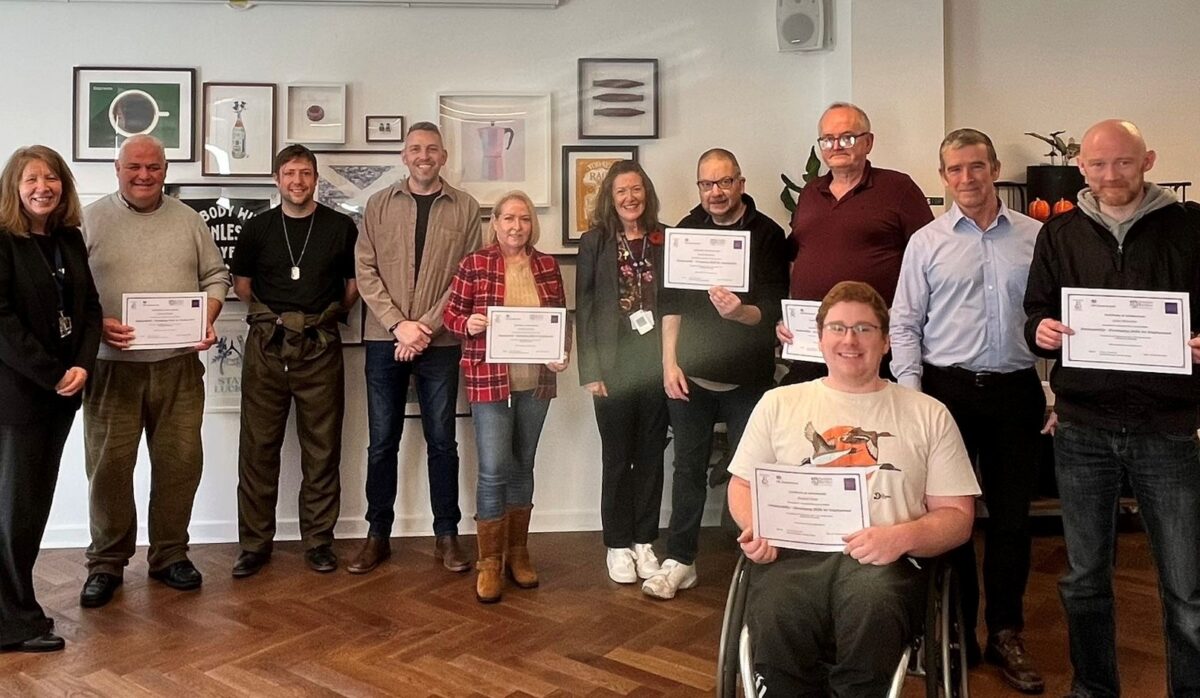A pro-innovation approach to AI regulation

The Rt Hon Michelle Donelan MP, Secretary of State for Science, Innovation and Technology
I believe that a common-sense, outcomes-oriented approach is the best way to get right to the heart of delivering on the priorities of people across the UK. Better public services, high-quality jobs and opportunities to learn the skills that will power our future – these are the priorities that will drive our goal to become a science and technology superpower by 2030.
Artificial Intelligence (AI) will play a central part in delivering and enabling these goals, and this white paper will ensure we are putting the UK on course to be the best place in the world to build, test and use AI technology. But we are not starting from zero. Having invested over £2.5 billion in AI since 2014, this paper builds on our recent announcements of £110 million for our AI Tech Missions Fund, £900 million to establish a new AI Research Resource and to develop an exascale supercomputer capable of running large AI models – backed up by our new £8 million AI Global Talent Network and £117 million of existing funding to create hundreds of new PhDs for AI researchers.
Most of us are only now beginning to understand the transformative potential of AI as the technology rapidly improves. But in many ways, AI is already delivering fantastic social and economic benefits for real people – from improving NHS medical care to making transport safer. Recent advances in things like generative AI give us a glimpse into the enormous opportunities that await us in the near future if we are prepared to lead the world in the AI sector with our values of transparency, accountability and innovation.
My vision for an AI-enabled country is one where our NHS heroes are able to save lives using AI technologies that were unimaginable just a few decades ago. I want our police, transport networks and climate scientists and many more to be empowered by AI technologies that will make the UK the smartest, healthiest, safest and happiest place to live and work. That is why AI is one of this government’s 5 technologies of tomorrow – bringing stronger growth, better jobs, and bold new discoveries. It is a vision that has been shaped by stakeholders and experts in AI, whose expertise and ideas I am determined to see reflected in our department.
The UK has been at the forefront of this progress, placing third in the world for AI research and development. We are home to a third of Europe’s total AI companies and twice as many as any other European country. Our world-leading status is down to our thriving research base and the pipeline of expertise graduating through our universities, the ingenuity of our innovators and the government’s long-term commitment to invest in AI.
To ensure we become an AI superpower, though, it is crucial that we do all we can to create the right environment to harness the benefits of AI and remain at the forefront of technological developments. That includes getting regulation right so that innovators can thrive and the risks posed by AI can be addressed.
These risks could include anything from physical harm, an undermining of national security, as well as risks to mental health. The development and deployment of AI can also present ethical challenges which do not always have clear answers. Unless we act, household consumers, public services and businesses will not trust the technology and will be nervous about adopting it. Unless we build public trust, we will miss out on many of the benefits on offer.
Indeed, the pace of change itself can be unsettling. Some fear a future in which AI replaces or displaces jobs, for example. Our white paper and our vision for a future AI-enabled country is one in which our ways of working are complemented by AI rather than disrupted by it. In the modern world, too much of our professional lives are taken up by monotonous tasks – inputting data, filling out paperwork, scanning through documents for one piece of information and so on. AI in the workplace has the potential to free us up from these tasks, allowing us to spend more time doing the things we trained for – teachers with more time to teach, clinicians with more time to spend with patients, police officers with more time on the beat rather than behind a desk – the list goes on.
Indeed, since AI is already in our day-to-day lives, there are numerous examples that can help to illustrate the real, tangible benefits that AI can bring once any risks are mitigated. Streaming services already use advanced AI to recommend TV shows and films to us. Our satnav uses AI to plot the fastest routes for our journeys, or helps us avoid traffic by intelligently predicting where congestion will be on our journey. And of course, almost all of us carry a smartphone in our pockets that uses advanced AI in all sorts of ways. These common devices all carried risks at one time or another, but today they benefit us enormously.
That is why our white paper details how we intend to support innovation while providing a framework to ensure risks are identified and addressed. However, a heavy-handed and rigid approach can stifle innovation and slow AI adoption. That is why we set out a proportionate and pro-innovation regulatory framework. Rather than target specific technologies, it focuses on the context in which AI is deployed. This enables us to take a balanced approach to weighing up the benefits versus the potential risks.
We recognise that particular AI technologies, foundation models for example, can be applied in many different ways and this means the risks can vary hugely. For example, using a chatbot to produce a summary of a long article presents very different risks to using the same technology to provide medical advice. We understand the need to monitor these developments in partnership with innovators while also avoiding placing unnecessary regulatory burdens on those deploying AI.
To ensure our regulatory framework is effective, we will leverage the expertise of our world class regulators. They understand the risks in their sectors and are best placed to take a proportionate approach to regulating AI. This will mean supporting innovation and working closely with business, but also stepping in to address risks when necessary. By underpinning the framework with a set of principles, we will drive consistency across regulators while also providing them with the flexibility needed.
For innovators working at the cutting edge and developing novel technologies, navigating regulatory regimes can be challenging. That’s why we are confirming our commitment to taking forward a key recommendation made by Sir Patrick Vallance to establish a regulatory sandbox for AI. This will bring together regulators to support innovators directly and help them get their products to market. The sandbox will also enable us to understand how regulation interacts with new technologies and refine this interaction where necessary.
Having exited the European Union we are free to establish a regulatory approach that enables us to establish the UK as an AI superpower. It is an approach that will actively support innovation while addressing risks and public concerns. The UK is home to thriving start-ups, which our framework will support to scale-up and compete internationally. Our pro-innovation approach will also act as a strong incentive when it comes to AI businesses based overseas establishing a presence in the UK. The white paper sets out our commitment to engaging internationally to support interoperability across different regulatory regimes. Not only will this ease the burden on business but it will also allow us to embed our values as global approaches to governing AI develop.
Our approach relies on collaboration between government, regulators and business. Initially, we do not intend to introduce new legislation. By rushing to legislate too early, we would risk placing undue burdens on businesses. But alongside empowering regulators to take a lead, we are also setting expectations. Our new monitoring functions will provide a real time assessment of how the regulatory framework is performing so that we can be confident that it is proportionate. The pace of technological development also means that we need to understand new and emerging risks, engaging with experts to ensure we take action where necessary. A critical component of this activity will be engaging with the public to understand their expectations, raising awareness of the potential of AI and demonstrating that we are responding to concerns.
The framework set out in this white paper is deliberately designed to be flexible. As the technology evolves, our regulatory approach may also need to adjust. Our principles-based approach, with central functions to monitor and drive collaboration, will enable us to adapt as needed while providing industry with the clarity needed to innovate. We will continue to develop our approach, building on our commitment to making the UK the best place in the world to be a business developing and using AI. Responses to the consultation will inform how we develop the regulatory framework – I encourage all of those with an interest to respond.
Read the full policy paper here.
Executive summary
Artificial intelligence – the opportunity and the challenge
1. Artificial intelligence (AI) is already delivering wide societal benefits, from medical advances[1] to mitigating climate change.[2] For example, an AI technology developed by DeepMind, a UK-based business, can now predict the structure of almost every protein known to science.[3] This breakthrough will accelerate scientific research and the development of life-saving medicines – it has already helped scientists to make huge progress in combating malaria, antibiotic resistance, and plastic waste.
2. The UK Science and Technology Framework[4] sets out government’s strategic vision and identifies AI as one of 5 critical technologies. The framework notes the role of regulation in creating the environment for AI to flourish. We know that we have yet to see AI technologies reach their full potential. Under the right conditions, AI will transform all areas of life[5] and stimulate the UK economy by unleashing innovation and driving productivity,[6] creating new jobs and improving the workplace.
3. Across the world, countries and regions are beginning to draft the rules for AI. The UK needs to act quickly to continue to lead the international conversation on AI governance and demonstrate the value of our pragmatic, proportionate regulatory approach. The need to act was highlighted by Sir Patrick Vallance in his recent Regulation for Innovation review. The report identifies the short time frame for government intervention to provide a clear, pro-innovation regulatory environment in order to make the UK one of the top places in the world to build foundational AI companies.[7]
4. While we should capitalise on the benefits of these technologies, we should also not overlook the new risks that may arise from their use, nor the unease that the complexity of AI technologies can produce in the wider public. We already know that some uses of AI could damage our physical[8] and mental health, [9] infringe on the privacy of individuals[10] and undermine human rights.[11]
5. Public trust in AI will be undermined unless these risks, and wider concerns about the potential for bias and discrimination, are addressed. By building trust, we can accelerate the adoption of AI across the UK to maximise the economic and social benefits that the technology can deliver, while attracting investment and stimulating the creation of high-skilled AI jobs.[12] In order to maintain the UK’s position as a global AI leader, we need to ensure that the public continues to see how the benefits of AI can outweigh the risks.[13]
6. Responding to risk and building public trust are important drivers for regulation. But clear and consistent regulation can also support business investment and build confidence in innovation. Throughout our extensive engagement, industry repeatedly emphasised that consumer trust is key to the success of innovation economies. We therefore need a clear, proportionate approach to regulation that enables the responsible application of AI to flourish. Instead of creating cumbersome rules applying to all AI technologies, our framework ensures that regulatory measures are proportionate to context and outcomes, by focusing on the use of AI rather than the technology itself.
7. People and organisations develop and use AI in the UK within the rules set by our existing laws, informed by standards, guidance and other tools. But AI is a general purpose technology and its uses can cut across regulatory remits. As a result, AI technologies are currently regulated through a complex patchwork of legal requirements. We are concerned by feedback from across industry that the absence of cross-cutting AI regulation creates uncertainty and inconsistency which can undermine business and consumer confidence in AI, and stifle innovation. By providing a clear and unified approach to regulation, our framework will build public confidence, making it clear that AI technologies are subject to cross-cutting, principles-based regulation.
Sector Response
TUC General Secretary Paul Nowak said:
“AI is going to transform the way millions work in this country and is already being used across the economy to line-manage, hire and fire staff.
“To ensure AI is used ethically – and in a way that benefits working people – we need proper regulation.
“But the government is passing the buck. Today’s white paper is vague and fails to offer any clear guidance to regulators. Instead, we have a series of flimsy commitments.
“It is essential that employment law keeps pace with the AI revolution. This white paper spectacularly fails to do that.”
Iván de Prado Alonso, Head of AI at Freepik Company
“This recent whitepaper represents a concerted push towards creating a space supportive of current and future AI innovation. Rather than imposing stringent regulation too soon, the initiative will provide the government with more flexibility to safeguard a technology delivering real social and economic benefits to people across the UK.
“ChatGPT and other AI tools dominating current headlines are tremendously powerful, with their widespread integration to a range of other technologies inevitable. In the creative sphere, we are seeing boundless opportunities for people to easily generate original images. For small businesses and aspiring entrepreneurs, their work becomes cheaper and easier.
“It is therefore not yet time for a top-down approach to AI regulation while its true benefits are still being realised. The key is to strike the balance between ensuring fairness and making AI possible to use and experiment with – which this pro-innovation approach supports. I expect a warm welcoming from technology vendors across the UK as the government encourages creating an AI-enabled nation.”











Responses